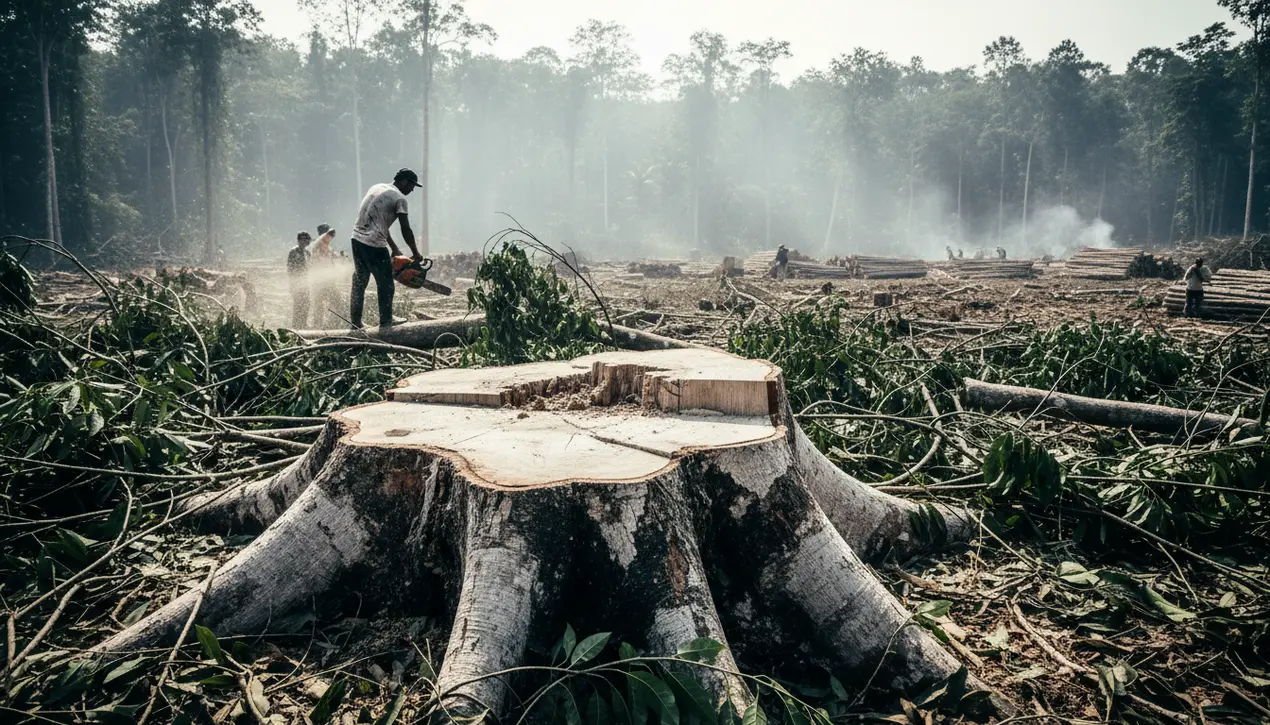
PoliticslegislationEnvironmental Laws
Asia Urges EU Action on Deforestation-Free Timber
RA
Rachel Adams
19 hours ago7 min read2 comments
Europe is once again embroiled in a prolonged argument over how to keep deforestation-linked timber out of its markets, a political paralysis that feels like a distant academic debate in Brussels conference rooms but carries immediate, visceral consequences for the lush, breathing ecosystems of Southeast Asia. The European Union’s deforestation regulations, once promoted as a bold step forward akin to the spirit of the Paris Agreement, have instead become a symbol of hesitation and uneven political will, a failure of global leadership that echoes the empty promises made at countless climate summits.For nations like Indonesia and Malaysia, which are on the front lines of both sustainable forestry initiatives and the brutal economic pressures that drive illegal logging, this European indecision is not a bureaucratic footnote; it is a direct threat to their biodiversity, their climate commitments, and the livelihoods of communities who depend on the forest's delicate balance. The regulations, designed to ensure that products like palm oil, soy, and timber are not sourced from recently deforested land, are now being undermined by member states seeking delays and exemptions for their own economic interests, creating a persistent uncertainty that agribusiness and illegal loggers exploit.This regulatory vacuum allows the chainsaws to continue their work, clearing hectares of ancient rainforest that serve as critical carbon sinks and habitats for endangered species like the Sumatran tiger and the orangutan, a tragedy I've witnessed firsthand in the fading green corridors of Borneo. The data is stark and unequivocal: according to Global Forest Watch, the tropics lost 4.1 million hectares of primary rainforest in 2022 alone, a staggering loss that fuels a feedback loop of climate change, soil erosion, and disrupted water cycles. When the EU dithers, it isn't just postponing a policy; it is actively enabling an ecological catastrophe, sending a signal to global markets that sustainability is negotiable.Asian governments and forestry associations are now urgently calling for Brussels to match its rhetoric with action, arguing that without a unified and enforced standard, their own efforts to combat deforestation are undermined by a European market that continues to absorb ambiguously sourced commodities. The situation mirrors the long, painful battle over the ivory trade, where political delays and loopholes directly translated into more slaughtered elephants; here, every month of European infighting translates into more fallen trees, more displaced wildlife, and a more precarious future for our planet. The path forward requires the EU to transcend its internal squabbles and demonstrate the courage its regulations promised, because for the emerald heartlands of Asia, this is not a policy debate—it is a race against time for survival.
#environmental policy
#EU deforestation regulations
#timber trade
#Asia
#featured
Stay Informed. Act Smarter.
Get weekly highlights, major headlines, and expert insights — then put your knowledge to work in our live prediction markets.
Related News
Comments
Loading comments...
© 2025 Outpoll Service LTD. All rights reserved.